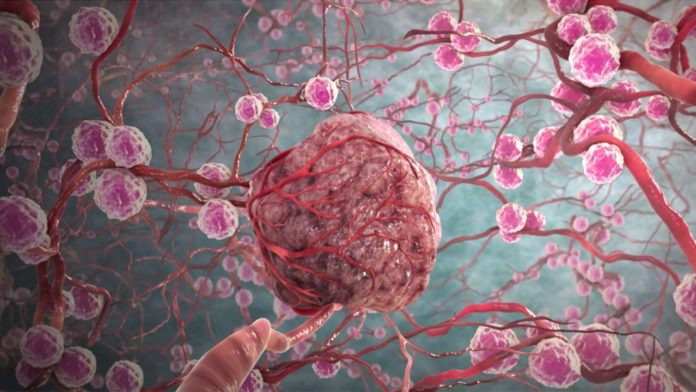
A class of hormonal drugs called aromatase inhibitors can significantly reduce the risk of death among postmenopausal women with the most common form of breast cancer, a new study shows.
The findings, published in The Lancet medical journal, confirm that aromatase inhibitors have a key role in the treatment of estrogen receptor-positive breast cancer, outperforming the older hormonal treatment tamoxifen by a significant margin.
Estrogen receptor-positive (ER-positive) breast cancer accounts for around 70% of the estimated 232,00 cases of breast cancer diagnosed each year among American women. This type of breast cancer is characterized by the presence of receptors for the hormone estrogen. When the hormone binds to these receptors, this can encourage the growth of breast cancer tumors.
At present, women with ER-positive breast cancer are typically treated with tamoxifen, a drug that prevents estrogen from binding to receptors in breast cancer cells. The drug is primarily prescribed for women with early-stage breast cancer who have undergone surgery, radiation and/or chemotherapy in order to prevent recurrence. Evidence from past studies shows that taking tamoxifen for a period of five years is associated with a 30% reduction in breast cancer mortality.
But according to this latest study, another class of hormonal drugs — called aromatase inhibitors — may be even more effective.
Aromatase inhibitors work to lower estrogen levels by preventing the enzyme aromatase — found in fat tissue — from changing other hormones into estrogen. As such, there is less estrogen to bind to receptors in breast cancer cells. In the U.S., aromatase inhibitors are currently used to treat early-stage breast cancer in postmenopausal women who have already been treated with tamoxifen for around 2-3 years.
Previous studies have suggested that aromatase inhibitors may be more effective for reducing breast cancer recurrence than tamoxifen, but their impact on survival has remained unclear. Current clinical guidelines reflect the uncertainty in when to use aromatase inhibitors or tamoxifen in the course of treatment – but the new study could help clarify these recommendations.
Aromatase inhibitors reduced breast cancer mortality by 40%
For the study, researchers from the Institute for Cancer Research (ICR) in the U.K. analyzed data from nine clinical trials involving 31,920 postmenopausal women with early-stage ER-positive breast cancer. The women in the trials had either received no hormonal therapy or had used aromatase inhibitors or tamoxifen for at least 5 years.
Compared with women who had not received hormone therapy, those who received aromatase inhibitors were 40% less likely to die from breast cancer in the 10 years after treatment initiation. Women who took tamoxifen, on the other hand, reduced their risk of breast cancer death by about 30%.
Additionally, breast cancer recurrence occurred more frequently with tamoxifen than with aromatase inhibitors — indicating that aromatase inhibitors conferred “significantly greater protection than that offered by tamoxifen,” lead author Dr. Mitch Dowsett said in a statement.
“Aromatase inhibitors remove only the tiny amount of estrogen that remains in the circulation of women after the menopause – but that’s enough to have a substantial impact on a wide range of ER-positive tumors,” said Dr. Dowsett, who heads the Center for Molecular Pathology at the ICR.
The researchers say they hope their findings will lead to improved recommendations for the use of hormone therapy in postmenopausal breast cancer patients, and ultimately, to better outcomes and longer survival.
“The evidence on aromatase inhibitors has been accumulating for well over a decade, but it has taken this huge and complex study to make sense of all the data, and provide a firm basis for clinical guidelines,” adds Dr. Paul Workman, chief executive of the ICR.
Though both kinds of therapy have side effects, those from tamoxifen can be more life-threatening. Tamoxifen can increase risk for blood clots in the lungs and legs, stroke, cataracts and uterine cancer, although the most serious side effects are still rare.
Meanwhile, side effects associated with aromatase inhibitors can include shortness of breath, chest pain, hot flashes, muscle or joint pain and depression. But given that the drugs are so effective, “it’s important to ensure that women with significant side effects are supported to try to continue to take treatment and fully benefit from it,” notes Dr. Dowsett.
